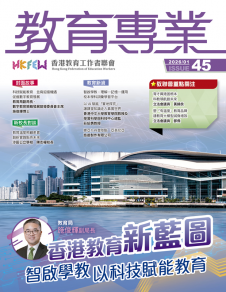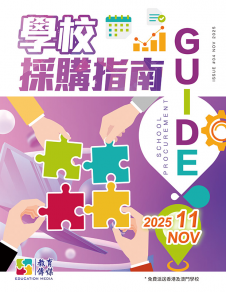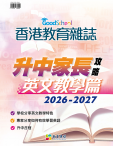「亂」中有序
教育資訊 教育傳媒 香港教育雜誌 專家分享 英語詞彙 露雲娜老師上期與各讀者分享了常用英語詞彙在加了「s」後便有機會脫離原來意思,變成新字。有同學慨歎這做法令人無所適從,反問為何英語中沒有更多不同的詞彙表達個別意思。其實同學正指出學習英語的盲點——「亂」。「亂」不在英語,而是在學習過程當中,皆因同學還未能接受英語的構造特色。試想一下,顏色原來也只有三種原色:紅、黄、藍,為何我們能擁有一個七彩繽紛的世界,有各式各樣的色彩呢?答案是:要重複使用。
筆者認為英語學習就是要懂得有條理地解「亂」。不要老是套用母語中文的學習模式。否則就像質疑動物為何不像人類用兩條腿走路而要用上四條腿的思維一樣。大家或許不知道有些極端例子,被很多英語冷知識(English Trivia)提及,並已記錄於《健力士世界紀錄大全》內: 一個「set」字可擁有多達430種用法。讀者若然評價自己或子女的英語水平不足,或許需要認真地反思過往的學習模式是否能真正有效地學習?正如拳王阿里Muhammad Ali亦以一詞多用的金句去勉勵大家:「Don't count the days, make the days count.」(「別數算日子,讓日子過得有意義。」)
今期繼續對比一下常用英語有「s」與沒有「s」的差別。
|
|
|
|
|
|
|
1 |
green (adj.) |
綠色 |
greens (n.) |
青菜 |
|
|
I like my green shirt. |
Eat up your greens, they are good for you. |
||
|
2 |
iron (n.) |
鐵 |
irons (n.) |
鐵鍊 |
|
|
It is difficult to bend an iron bar. |
It was common for prisoners to be tied in irons. |
||
|
3 |
light (adj.) |
輕 |
lights (n.) |
燈 |
|
|
This pen is very light. |
Don’t leave the lights on when you are not in the room. |
||
|
4 |
mean (v.) |
意思是 |
means (n.) |
方法 |
|
|
What does this vocabulary mean? |
Do you have any means of identification? |
||
|
5 |
paper (n.) |
紙 |
papers (n.) |
文件 |
|
|
This card is made of paper. |
I put all my papers on my desk. |
||
|
6 |
physic (n.) |
藥物 |
physics (n.) |
物理 |
|
|
Chinese medicine is the treasure of Chinese traditional physic. |
Michelle is a physics teacher. |
||
|
7 |
regard (v.) |
看待 |
regards (n.) |
問候 |
|
|
Don’t regard this very seriously. |
Best regards |
||
|
8 |
respect (v.) |
尊重 |
respects (n.) |
方面 |
|
|
Most students respect their teachers. |
The two theories differ in many respects. |
||
|
9 |
right (adj.) |
正確的 |
rights (n.) |
權利 |
|
|
You’ve made a right choice. |
We should consider the rights of others. |
||
|
10 |
sometime (adv.) |
某時候 |
sometimes(adv.) |
有時 |
|
|
Give me a call sometime. |
John and Peter sometimes go fishing on Sundays. |
||
|
11 |
wood(n.) |
木 |
woods(n.) |
樹木 |
|
|
This table is made of wood. |
The students walked slowly through the woods. |
||
|
12 |
work(v.) |
工作 |
works(n.) |
作品 |
|
|
Most people work from 9 a.m. to 5 p.m. |
The young writer has written over 30 works of fiction. |
||











































































0495514ec1f98e8f8c47e05699c14b63.jpeg)
495e65fa9991f16f8b2f827cf4b473c2.jpg)
2334ce93f6a9ba054ab2b1bbe28c4a6f.jpg)
cd2e83ff72a04064503823499897d783.jpg)
401909ef1d85d5616e36375d8feac082.jpg)
e76f5f917104f2bac78a2d6acf739543.jpg)
0a3da60610ca1f8e4cc56bc7557c9a50.jpg)
b88b1fcf268522ff6ee42fc23fc51971.jpg)